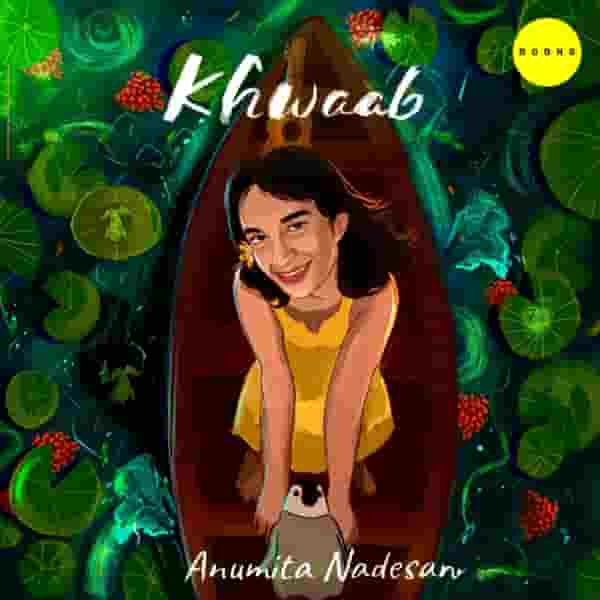Mera khwahishon ka shamiyana
Khwaabon ke jahan mere se nikla sa
Mera bandishon ke daayre se
Banke dil koyi khazana nikla sa
The singer describes her desires as a canopy, symbolizing the vastness and beauty of her aspirations. She compares them to a world of dreams that have originated from within her, suggesting the power of her imagination and inner world. The phrase “breaking free from the confines of my limitations” implies that she is transcending the boundaries and restrictions that may have held her back.
Main toh khamosh lehron pe behti
Hoon woh kashti jo dhoondhe hai dhun meri
Jaise baarish ki boondon mein chalti
Main hava hoon jo boondon se pooche ki
The singer portrays herself as a flowing entity on silent waves, like a boat that seeks her unique melody. This imagery suggests her fluidity and adaptability, as well as her search for self-expression. She compares herself to raindrops that move within the rain, indicating her ability to navigate and thrive amidst challenging circumstances. The mention of the breeze asking the drops implies curiosity about her own path and destination.
Hai kahan woh jahan jo
Har zubaan mein ho naam mere
Har zubaan mein naam mere
The singer wonders about the existence of a place that is universally understood and recognized, regardless of language or culture. She desires her name to be known and acknowledged in every tongue, emphasizing her longing for widespread recognition and impact. This line highlights her aspiration to leave a lasting imprint and be celebrated across diverse communities.
Yeh toh dil ki hai wajah, chaahe jaane kya bhala
Par hai jaane kin dishaon ki hava
The singer acknowledges that the desires and dreams she possesses are the driving force behind her actions. She recognizes that while the outcome or consequences may be uncertain, the reasons behind her choices are rooted in the depths of her heart. The line “even though who knows what is truly good” suggests that the ultimate judgment of the outcome is uncertain or subjective. The singer ponders the direction of the wind, which symbolizes the unpredictable nature of life and its various possibilities. This line reflects her awareness of the uncertain paths that lie ahead and the need to navigate them with resilience and adaptability.
Main toh khamosh lehron pe behti
Hoon woh kashti jo dhoondhe hai dhun meri
Jaise baarish ki boondon mein chalti
Main hava hoon jo boondon se pooche ki
The singer portrays herself as a flowing entity on silent waves, like a boat that seeks her unique melody. This imagery suggests her fluidity and adaptability, as well as her search for self-expression. She compares herself to raindrops that move within the rain, indicating her ability to navigate and thrive amidst challenging circumstances. The mention of the breeze asking the drops implies curiosity about her own path and destination.
Hai kahan woh jahan jo
Har zubaan mein ho naam mere
Har zubaan mein naam mere
The singer wonders about the existence of a place that is universally understood and recognized, regardless of language or culture. She desires her name to be known and acknowledged in every tongue, emphasizing her longing for widespread recognition and impact. This line highlights her aspiration to leave a lasting imprint and be celebrated across diverse communities.
Mera khwahishon ka shamiyana
Khwaabon ke jahan mere se nikla sa
The singer describes her desires as a canopy, symbolizing the vastness and beauty of her aspirations. She compares them to a world of dreams that have originated from within her, suggesting the power of her imagination and inner world.

